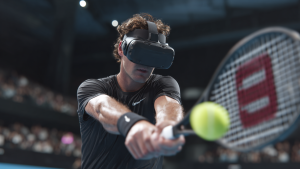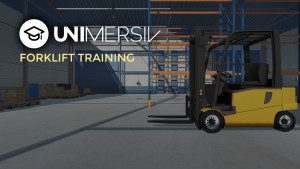Why virtual reality should be used in the Classroom
Education | December 4, 2015
Virtual reality will change the way we learn forever
In recent years, the development of information technology has progressed in leaps and bounds. The advancement of programming techniques, rapid productivity growth of semiconductor chips, the development of special means of information transmission, as well as feedback devices (head-mounted stereoscopic displays, gloves and suits that have embedded sensors that transmit information to a computer about a user’s movements) – the culmination of these advancements have yielded a momentous technology in the shape of virtual reality.

Picture of a kid using the Google Expeditions program
No longer are user experiences confined to the realm of an observer; they have taken a turn for the lucid as he/she is transported into a completely different world where interaction with programmed objects are possible just like in reality. The ramifications of VR education are endless. It can change the way we learn about our world and even the way we live in it.
Virtual reality helps shorten the learning time
On the education front virtual reality can see widespread implementation. As research has shown, students remember 20% of what they hear, 30% of what they see and up to 90% of what they do or simulate. Virtual reality yields the latter scenario impeccably; students can interact with the virtual environment in person and manipulate the various objects within it. This supports “learning by doing” and also results in creativity by constructionism.
There are other ways in which virtual reality supports learning as well. It helps shorten the learning time because a multi-sensory approach is used which can be conductive to various learning styles. Additionally, virtual reality facilitates the analysis of complex and abstract ideas through the mode of reification; where a tangible model is created that can be analyzed from every perspective.
One of the best benefits of using virtual reality as an educational medium is the immersive experience it brings to the table. Bland and vague subjects like history and space, along with experiment-oriented subjects like physics, chemistry and biology will be greatly impacted by virtual reality. This will be so because the students will be exposed to sensorial stimuli; may it be testing the concepts first hand or reliving the events that lead to them. You can see that virtual reality will lead to fun learning and better retention using these methods.
The best way to support distance learning
Virtual reality will also support distance learning as the whole educational experience won’t be confined to a class room and students could virtually access a class they are interested in.
In addition to local students, any foreign student who is interested in a certain subject, taught at a certain virtual school or university could enroll in it. This would result in diversity in the classroom and students could easily accomplish cultural exchanges thereby broadening the horizons of the students involved.
Virtual reality will be especially beneficial in yielding professionals that are adept at what they do. This holds special significance for areas such as medicine, engineering and air travel. By acclimatizing professionals in these fields to future tasks beforehand, and that too in an immersive way, is bound to lead to less instances of potentially disastrous mishaps happening in their working lives.
While simulations are currently commonplace in these cases but gradually virtual reality is getting into the picture with world’s leading universities working on virtual testing grounds for the likes of ophthalmological surgeries, mid-air refueling etc.
When will we see virtual reality in the classrooms?
In short, virtual reality is the way of the future when it comes to education because of the countless advantages it holds over the traditional way of learning. So, don’t be surprised when the Oculus Rift debuts in a classroom during the course of the next few years!
Subscribe to our newsletter
We write about the use of Virtual Reality for non-gaming applications.










